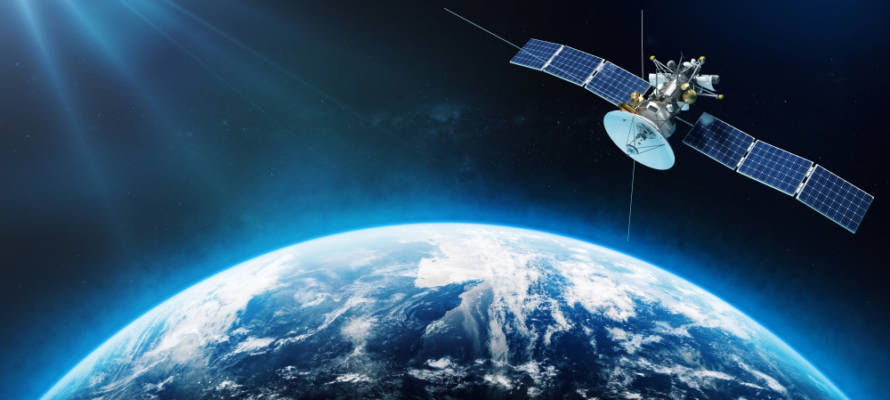Artificial intelligence program will allow earth-observation and communications satellites to have longer working lifetimes in space.
By Yakir Benzion, United With Israel
Israel Aerospace Industries (IAI) announced Tuesday that it has developed an innovative artificial intelligence system that will help keep observation and communication satellites in orbit beyond their previous life expectancy.
Based on years of focus and experience in space by IAI’s Systems, Missiles and Space Group, the new SatGuard system extends the life of satellites deployed into orbit by detecting irregularities in the satellite’s operations.
Telemetry information received from the satellites enables the system to analyze trends and identify irregularities and changes that occur in the satellite, address them, and prevent future anomalies.
Some measurements tested and monitored by SatGuard include sub-systems navigation accuracy, temperatures, electric currents and voltages, dynamical behavior, communication sub-systems, and more. The analysis of satellite activity data over the years of activity in space is made possible through artificial intelligence (AI), big data, and machine learning that can later develop a system that supports decisions and problem-solving for IAI’s satellites.
The company has already proven the concept of the new system by using data received from the “Venus” research satellite that was developed and built by IAI for the Israeli and French space agencies.
“SatGuard is an innovative anomaly-analysis system that leverages big data in satellite management,” said Inbal Kreiss, head of the Innovation Center for IAI’s Systems, Missiles and Space Group. “Advanced machine learning, big data, and AI capabilities enabled the accelerated development of a system that provides accurate results in real-time.
“SatGuard will be used on satellites as well as in other lines of business, including customer service, online support, and implementation of trend-analyses findings,” Kreiss added.
The new satellite operating system is only the latest in a series of high-tech space advances from Israel that have been making their way into orbit.
In February, a nanosatellite made by Tel Aviv University was launched to the International Space Station where it was released into orbit.
Earlier this month, the Israel Space Agency announced that a research project to improve on advanced Israeli battery technology would be conducted on the ISS to make electric cars more viable.
Eytan Stibbe, the second Israeli astronaut, is training to prepare for blast-off into orbit early next year.
